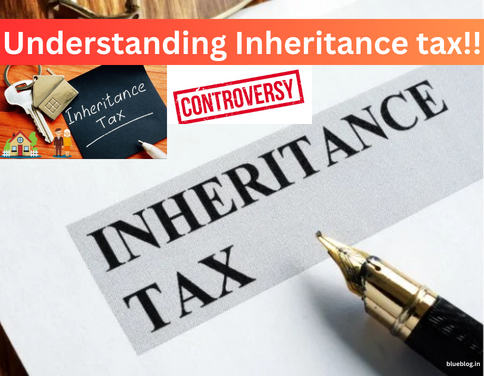In the realm of fiscal policy, the debate surrounding inheritance tax often ignites spirited discussions, reflecting differing ideologies and economic approaches. Recently, Indian Overseas Congress President Sam Pitroda’s advocacy of inheritance law in India has sparked considerable controversy, especially in light of the Congress Party’s stance on wealth distribution. Pitroda’s comments, against the backdrop of contrasting inheritance tax regimes between nations, underline the complexities and implications of such fiscal measures.
Pitroda’s advocacy and its implications
Sam Pitroda’s proposal for an inheritance tax in India has emerged amid a political landscape filled with discussions on wealth redistribution. His advocacy of transferring assets to the public sector reflected, if only partially, the ethos of equitable resource allocation. Pitroda’s interpretation of the American inheritance tax, in which a large portion of an individual’s estate is allocated to the government posthumously, serves as a focal point for comparative analysis. This discussion inspires a deeper examination of the implications and considerations of inheritance tax policies both domestically and internationally.
- Domestic implications: Pitroda’s proposal underlines the need for India to reevaluate its fiscal policies related to wealth distribution. Pitroda aims to eliminate socio-economic inequalities and promote a more equitable society by advocating for a partial inheritance tax.
- Comparative analysis: Comparison with the US inheritance tax system highlights alternative approaches to wealth redistribution. While the US implements a nuanced taxation framework with varying rates and exemptions, India’s lack of inheritance tax raises questions over its stance on wealth inequality.
- Global Perspective: Pitroda’s advocacy resonates with broader global discussions on fiscal policy and socioeconomic justice. Countries such as the UK and France have strong inheritance tax regimes, reflecting their commitment to equitable wealth distribution.
In conclusion, Sam Pitroda’s call for an inheritance tax in India goes beyond mere fiscal policy; This marks a paradigm shift towards inclusive governance and equitable resource allocation. By engaging in comparative analysis and drawing insights from global precedents, policymakers can chart a path toward a more equitable and sustainable economic future.
The American inheritance tax: a paradigm of fiscal policy
The United States imposes two different types of taxation on estates: the estate tax and the inheritance tax. While the estate tax is more prevalent, six states, including Iowa and Pennsylvania, impose an inheritance tax. Specifically, inheritance tax operates at the state level with varying rates and limits. Individuals who inherit property are subject to taxation based on the value of the property, with spouses and charitable organizations exempted.
Main ideas in US inheritance taxation
Understanding the intricacies of the US inheritance tax requires exploring its beneficiaries and exemptions. Spouses and charitable organizations often enjoy exemption from inheritance tax, while non-family beneficiaries may face levies ranging from nominal rates to a predetermined percentage of the estate’s value. In particular, minimizing financial liabilities requires careful estate planning due to the complexity of taxation.
Inheritance tax: lessons from India’s past
India’s beginning with inheritance tax began with the Estate Duty Act of 1953, which aimed to prevent economic inequality through progressive taxation. However, the law was fraught with challenges, including administrative complexities and double taxation concerns. Former Prime Minister Rajiv Gandhi’s decision to abolish the wealth tax in 1985 was a turning point, reflecting the country’s emerging financial landscape.
The way forward: implications for policy and governance
Pitroda’s advocacy for an inheritance tax in India resonates with broader discussions on socio-economic equality and fiscal reform. As policymakers deliberate on the efficacy of such measures, lessons learned from global precedents, including the US inheritance tax framework, provide invaluable insights. Balancing the imperatives of wealth retention with the principles of equitable distribution is paramount in shaping inclusive fiscal policies.
Finally, the debate around inheritance tax transcends national boundaries, encompassing fundamental debates over wealth redistribution and economic justice. Pitroda’s advocacy serves as a catalyst for introspection and urges stakeholders to address the complexities of fiscal policy with prudence and foresight. As nations navigate their way toward fiscal reform, lessons learned from diverse inheritance tax regimes offer a blueprint for informed decision-making and equitable governance.
Follow Us On Instagram Follow Us On XAlso read: Fact-Checking Yogi Adityanath’s Claims: Separating Truth from Rhetoric

